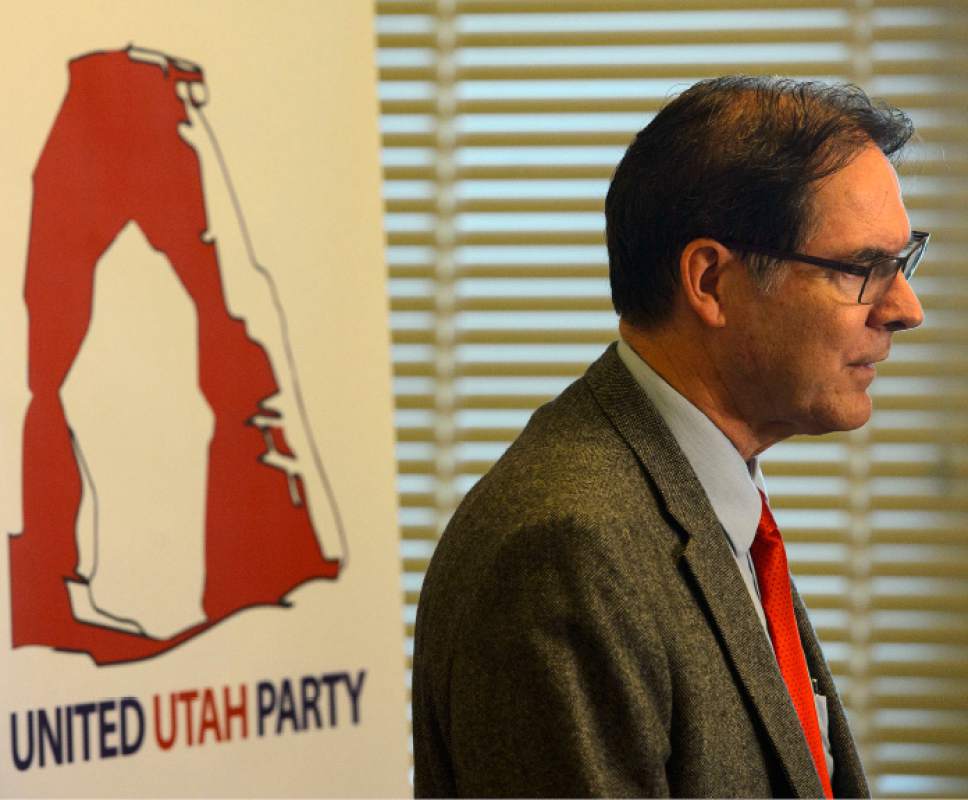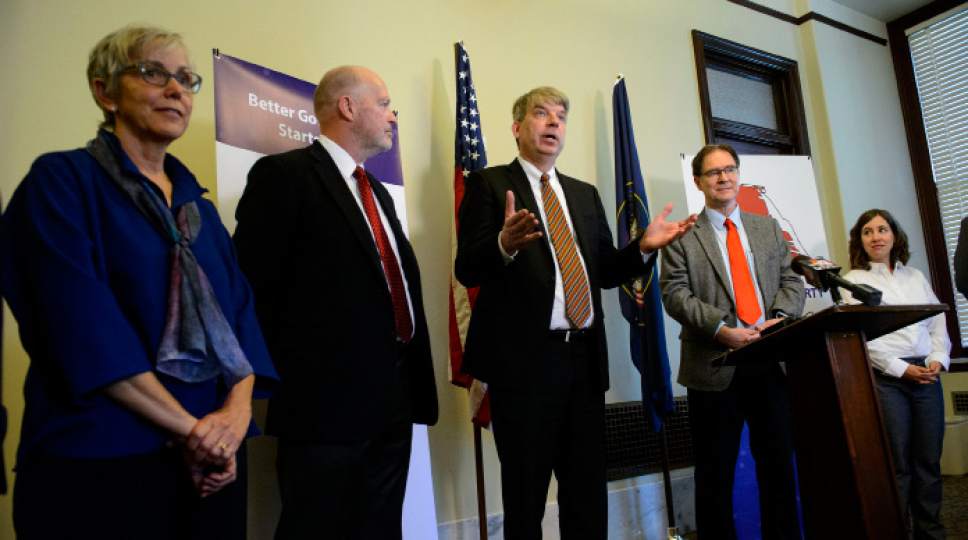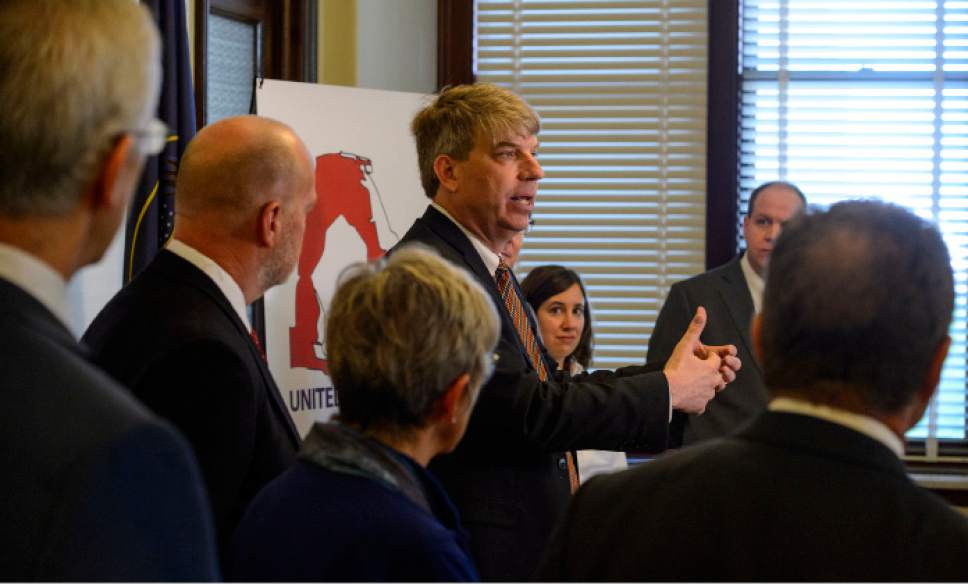This is an archived article that was published on sltrib.com in 2017, and information in the article may be outdated. It is provided only for personal research purposes and may not be reprinted.
The United Utah Party sued the state in federal court Wednesday, asking a judge to force the lieutenant governor's office to certify and place its candidate Jim Bennett on the special election ballot.
Bennett, son of the late three-term U.S. Sen. Bob Bennett, is seeking to replace Utah's exiting 3rd District Rep. Jason Chaffetz, who has said he will leave office June 30.
But even as the fledgling party filed the lawsuit, United Utah Chairman Richard Davis said his group is not seeking to disrupt the special election process Gov. Gary Herbert put in place. Moreover, the party is not out to insert itself into legislators' beef with the governor over who has authority to set the rules for such an election.
"Our complaint only asks that Jim Bennett be placed on the ballot," Davis said.
State elections officials, however, have so far refused to certify either Bennett or his party, leaving him unable to run as anything but an unaffiliated candidate.
"But I'm not unaffiliated, and I don't want to run and pretend that I am," Bennett said at a Wednesday news conference outside Salt Lake City's U.S. District Court. "The reason I'm running is to introduce the United Utah Party to the state of Utah. Running unaffiliated defeats that purpose."
Bennett filed to run for office with the lieutenant governor's office May 26. Under the law, elections officials have 30 days to certify a candidate for the ballot.
But Bennett said the Utah attorney general's office sent a letter Tuesday stating that he would not be added to the ballot.
In court papers, attorneys for the United Utah Party and its candidate contend Lt. Gov. Spencer Cox's decisions and actions violate state election law and Bennett's constitutional rights under both the First and 14th amendments.
The state's refusal has caused "irreparable harm, inasmuch as it deprives both the party and its candidate the ability to effectively campaign and solicit contributions in support of a nominee who will appear on the special election ballot as the United Utah Party's official candidate," the lawsuit states.
State elections director Mark Thomas said his office was not surprised by the lawsuit, adding that his office would abide by whatever a judge decides.
The state, however believes there is a specific statutory process that must be followed for any organization to be certified as a political party that can then place a candidate on the ballot, Thomas said. United Utah had asked the state to certify the party and Bennett provisionally and work out the details later.
The party "believes there perhaps should have been more latitude, I guess, because of the special election," Thomas said. "We do not see a way for them to get on the ballot."
Thomas did say he thought Bennett and the party had raised some legitimate questions about state election law and processes outlined in it. Those turned out to be more difficult to answer than was originally anticipated, he said, and led to the state's decision against certification.
The lawsuit comes amid a squabble between political leaders from both the Republican and Democratic parties and Herbert over who should set special election rules.
Herbert rejected lawmakers' repeated requests to call them into special session so they could have a say, saying he had the legal authority to call the special election and set its schedule.
Lawmakers have raised threats of a lawsuit, but have taken no action to do so and indicated Wednesday they likely won't derail the special election by taking the dispute to court.
Bennett said being kept off the ballot makes it difficult for him to raise money, campaign and raise a challenge to Utah's lopsided political system.
"We are reluctant plaintiffs here," he said. "And, candidly, we couldn't ask for a better real-life illustration for why our party is necessary."
Court records show the case has been assigned to U.S. District Judge David Nuffer. No hearings have been set, but attorneys for Bennett and the party have asked for an expedited review of the case.
Bennett also said he believes his late father, a lifelong Republican who had become disaffected from the party he had served for decades, would appreciate the push to get an alternative on the state's ballot.
"My dad has been very near and dear to me throughout this process," Bennett said. "I'd like to think he would be on the front lines supporting me."







